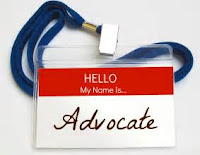- Know and have an understanding of what medications you take, how they should be taken (with/without food, morning/night, are there foods or other medications that interact, etc.) and why are you taking them. Be aware of possible side effects and always report them to your practitioner.
- If you have a chronic disease such as hypertension or diabetes, monitor and record your levels between appointments and carry your record with you to your appointments. A health log can be a valuable tool to determine the need for medication adjustments or understand new symptoms.
- Be prepared and learn helpful strategies of communication with your practitioner. As I was researching to do this post I came across the acronym OLD CARTS. This is the first step most practitioners use to help asses problems patients present with. When you tell your practitioner you have a pain...they will ask a series of questions. When did it start (Onset), where is the pain (Location and radiation), how long does it last...is it all the time or intermittent (Duration), how bothersome is the pain...is it sharp, dull, stabbing, gnawing, achy and the intensity (Character), what makes it worst...walking, standing, sitting (Aggravating factors) what makes it better...heat/ice, rest, medication (Relieving factors), how many incidents are there say in a week (Timing) and how bad is the pain...usually gauged on the scale of 1-10 (Severity).
- Be prepared with notes containing concerns and questions you would like addressed.
Monday, July 24, 2017
Becoming The Empowered Health Consumer
Better healthcare arises when it's consumers assume responsibility for their health and become empowered in their care . In addition to remaining current with routine and preventive health checks, the ability to help guide your practitioner throughout your relationship is vital. So what are some ways the healthcare consumers can be in partnership with their practitioner?
Subscribe to:
Post Comments (Atom)

No comments:
Post a Comment